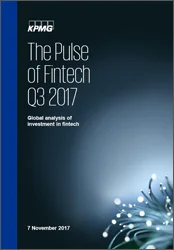BY Richard Summerfield
The UK remains the number one destination for foreign direct investment (FDI) in Europe, according to EY’s latest UK Attractiveness Survey. However, there was a notable decline in sentiment from foreign investors toward the UK as a place to invest in the future, which has allowed Germany and France in particular to gain ground.
The UK’s economy is in a state of transition, according to EY, with Brexit and ongoing technological changes impacting investments across sectors, as well as project types and sizes. In 2017, the UK attracted 6 percent more FDI projects compared with 2016, with the number of projects rising to 1205 from 1138. There was also a 6 percent boost in the number of FDI-related jobs created, to 50,196.
However, the UK’s traditional FDI targeted sectors, financial services and business services, recorded significant declines last years. Projects in the financial services space fell by 26 percent, despite the sector recording growth across Europe – the total number across the EU rose by 13 percent. The business services sector saw a decline of 10 percent as the European market recorded growth. Last year also saw the UK fall to second place behind Germany in attracting business services projects, as UK projects from this sector fell and Germany’s increased.
EY also noted a “marked increase” in UK outbound investment in 2017, with the trend particularly evident in the financial and business services sectors. The total number of outbound investments was 464, up 35 percent on the previous year’s total of 343; 110 of those investments went to Germany, and 79 to France. Business services outbound projects rose from 117 to 125, up 7 percent.
“It’s quite a pick up,” said Mark Gregory, EY’s chief economist, referring to the outbound investment project figures. “If it hadn’t been for the surge of digital, then the overall numbers would look pretty ugly. Lots of these digital projects are quite small. Our core is flat or shrinking.”
For the first time since EY began reporting on investment attractiveness, London is no longer the most attractive city for FDI in Europe. That honour goes to Paris, thanks to the burgeoning impact of Brexit and the so-called ‘Macron effect’.
Report: UK Attractiveness Survey




